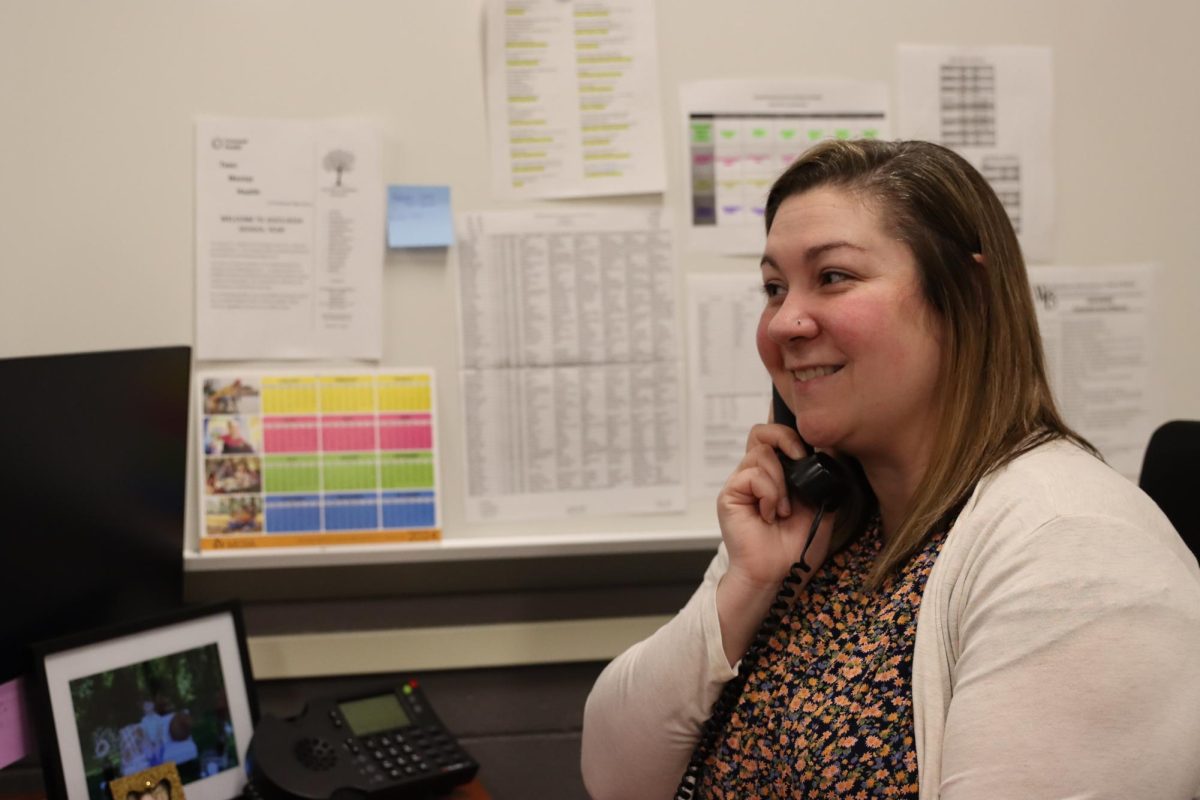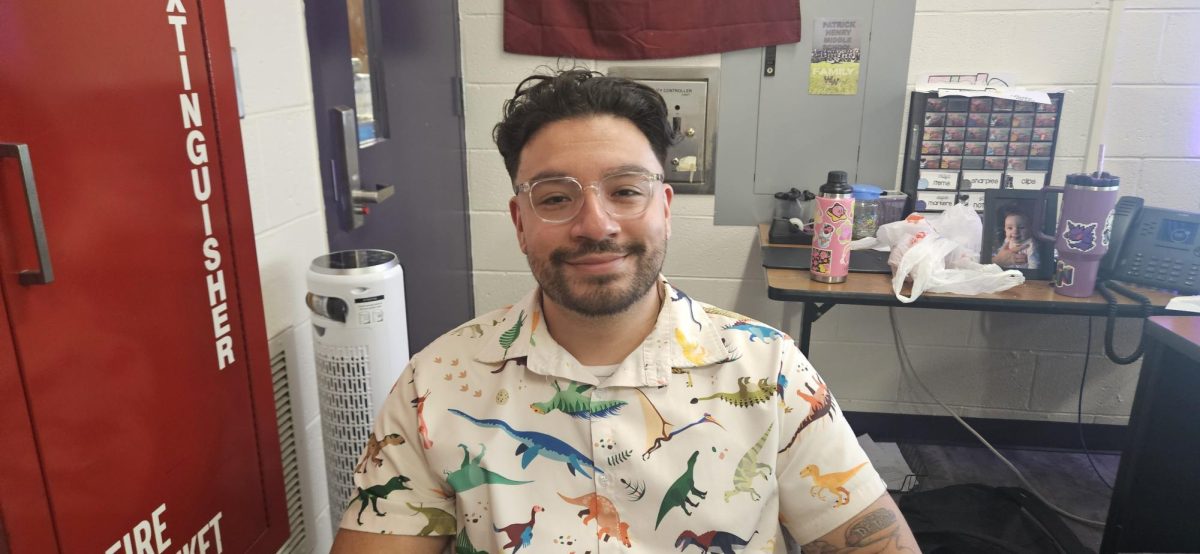Katherine Silcox has worked as a social worker at Woodhaven High School for 5 years. Although many students may not know what a school social worker does, this position is a crucial part of the Woodhaven High School population. Mrs. Silcox is the bridge between students’ school life and home life. She is considered support staff that works with students to ensure they are thriving both in school and out of school. Mrs. Silcox has access to resources such as mental health facilities, local therapists, career opportunities, and more. Here are 10 questions that dive into the incredible work that Mrs. Silcox does at WHS.
What does a school social worker do?
As a school social worker for WBSD and WHS, I am assigned to specifically service students who are eligible for Special Education services. These students have school social work services as a mandatory accommodation listed on their IEP. As part of my job requirements around servicing these students, there are several mandatory items that I must complete. For instance, I attend annual IEP meetings for these students, parent conferences and/or meetings, behavioral support meetings, cognitive behavioral therapy and social skills groups, in addition to many other items.
Who can go and see a social worker?
As one of the two social workers at WHS, I try to maintain an open-door policy for students. I have approximately 65-70 students for which I am required to provide services. Outside of those students, I do assist with district-wide crisis events and initiatives, as well as one-to-one support to students in the general education curriculum as a crisis may arise. I also aid the counselors in any school-wide interventions and work directly with Ms. Witz, who provides general education students social work services as needed.
What is your favorite part of your job?
Direct service work with students; being able to provide a consistent and safe place for students to receive support and services.
What inspired you to become a social worker?
My personal home life and upbringing were challenging. I found myself seeking the support of others at my school and within my community.
What is the difference between a school social worker, school therapist, and school counselor?
There are many differences between the levels of support that we are able to provide our students at WHS. We are very lucky to have such a broad team of mental health professionals and special education staff dedicated to these tiers of service. Here at WHS, our school counselors are our first line of support for students and families. They provide school-wide services for all students, such as academic and mental health support. They also run support groups and partner with community agencies to provide services to all students here at WHS. Ms. Witz, a social worker, is able to provide social work support services on a 1:1 and group level for general education and special education students who are referred for her support services through our MTSS process by the counselors. Additionally, I provide those specific skills-based services to those students who are eligible for special education services as described above. Finally, Dr. Schmaeman, our Corewell Health psychotherapist, provides a clinical level of mental health services to students and families who have opted to utilize outpatient services in addition to our support.
What will change for your position as Woodhaven High School is preparing to bring in the 9th graders next year?
Next year, it is anticipated that we will have an additional counselor and Ms. Witz will become full-time at WHS, whereas now she is here two days a week. Furthermore, my caseload will grow to about 100 students, so I will be leaning on the support of my peers to assist with crisis care as needed.
What connections do you have in the community to help students who may be struggling?
We partner with New Oakland, Corewell Health, Panorama, The Guidance Center and many other community agencies to provide outpatient support for our families and students.
What qualities does someone have to have to be a social worker?
In the state of Michigan, a clinically licensed social worker is required to have a Masters of Social Work, 4000 supervised clinical hours, as well as successfully complete the licensing exam and 45 hours of clinical continuing education every licensing period. In addition, this position requires someone with a great deal of compassion, empathy, flexibility and willingness.
What are the majority of issues you think teenagers face at a high school?
Teens now face a great deal more than even those who graduated 10 years ago. Social media, substance abuse, mental health (depression, anxiety, suicidality) and trauma (domestic and dating violence, gun violence, trafficking and gang relations) are amongst the top concerns for students today. Of course, students face a plethora of additional challenges.
How do you build relationships with students?
I find that building a relationship with my student is always based on the needs of that specific person. Ultimately, I think that teens just want to be heard and listened to, seen in a way that is non-judgmental. They want someone that they can relate to and who genuinely cares about their lives and success. I provide students with a safe environment to speak freely, knowing that I will do everything I can to support them in whatever way I can, while being honest and truthful. I think the most important thing for me is that my students know and understand that I will advocate for them, hear them, listen and be there for them as much as I am able in a really genuine and respectful way.





